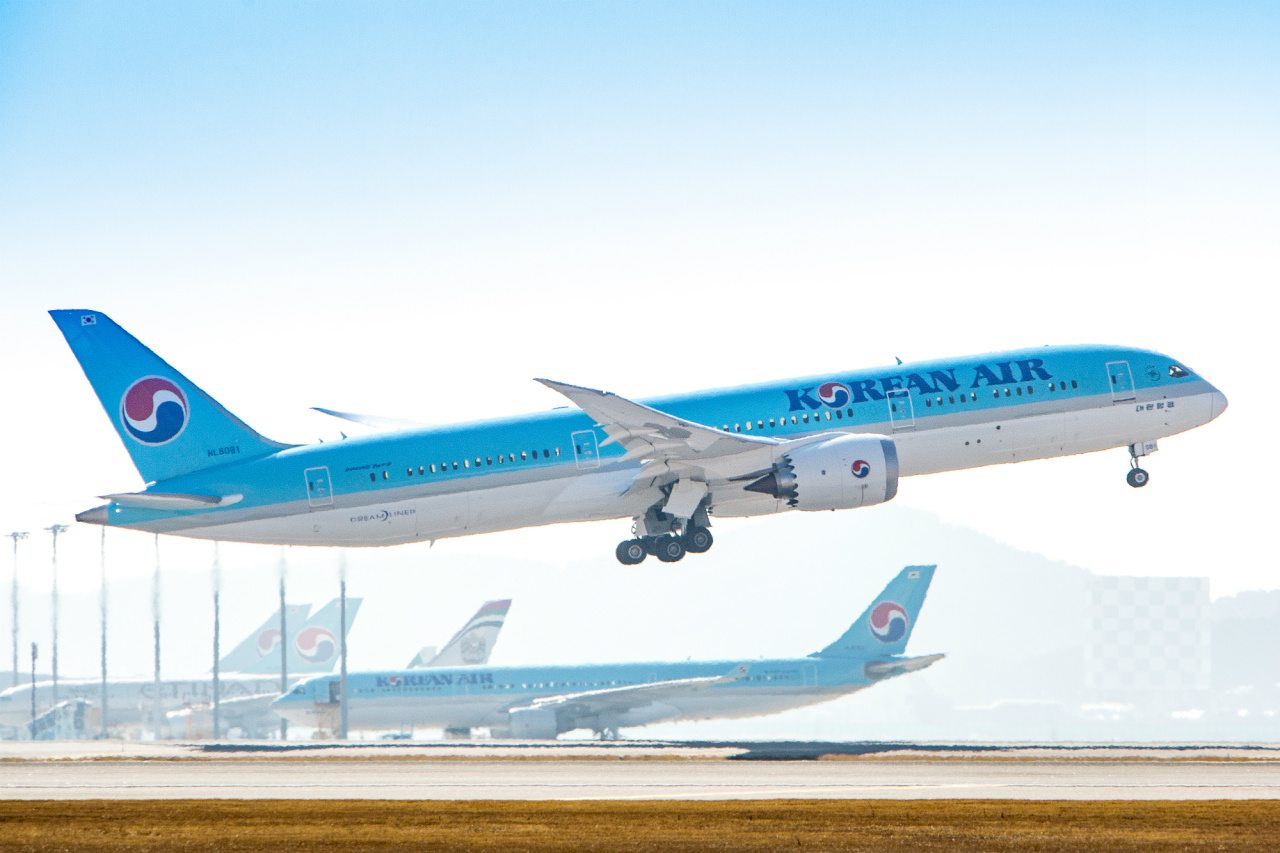Korean Air is facing hurdles in acquiring the cash-strapped air carrier Asiana Airlines as it awaits clearance from at least four regions the EU, the US, Japan, and China.
The EU’s regulatory body, considered one of the biggest obstacles in the airline’s bid as it has been getting tougher over business mergers, recently asked Korean low-cost carriers Tway Air and Air Premia for their opinion on the merger between South Korea’s two biggest air carriers, according to the aviation industry on Thursday.
Tway Air and Air Premia were asked about their financial capabilities, whether they had large aircraft, long-distance route operations capabilities, and opinions on market changes after the merger.
Both of them are known to have responded that they are planning to open new routes to Europe when the merger between Korean Air and Asiana Airlines takes place.
Tway Air is expected to review new routes to Paris and Rome, and Air Premia to Germany and London as these locations show high travel demands.
Tway Air has also been preparing large aircrafts such as A330-300 to start long-distance international flights.
Air Premia recently acquired a Boeing 787-9, an aircraft that can fly to western Europe, and transportation right from Incheon to Germany from the Transport Ministry last month.
Korean Air has been under a pre-consultation procedure with the EU since January 2021, which is when the company is required to submit related documents before the official merger review process.
The national flag carrier is likely to have proposed to the EU’s regulatory body to give up some of its transportation rights in certain regions and other adjustments to prevent monopoly in the aviation industry.
Even executive officials of Korean Air, including Cho Won-tae, chairman of Hanjin Group, parent company of Korean Air, are doing their best to win approval from the six remaining regions.
Chairman Cho is known to have visited the US recently to meet with those responsible for granting approval of the merger.
The US required Korean Air to submit plans on how to ensure competition in March, giving a specific name of the carrier that will fly routes it has dominance.
“There is a strong tendency to prioritize local companies’ interests when regulators review global merger and acquisition deals. Although we are proceeding slowly, we believe we are working towards a positive conclusion. Korean Air Lines will cooperate with requests of regulators abroad to get approval and carry out the acquisition of Asiana Airlines,” said an official from Korean Air.
But pessimists say the merger might fall apart, citing soured bilateral relationship with China.
“The delay is just too much. Even if the EU gives the approval, my concern is China. When it comes to China, it is not only about the merger but also about our bilateral relationship with China because they see the economy and foreign relations as a package deal,“ said professor Hwang Yong-sik from the division of business administration at Sejong University.
”Recently, South Korea strengthened its alliance with the US, like taking part in the Indo-Pacific Economic Framework. This could result China in using the disapproval of Korean Air-Asiana Airlines merger as its revenge card,” he said.
If China does not approve Korean Air’s Asiana take over, the merger is back to ground zero. Korean Air must get the green light from all nine antitrust authorities, which are South Korea, the EU, the US, China, Japan, Turkey, Vietnam, Taiwan and Thailand.
By Hong Yoo (
yoohong@heraldcorp.com)








